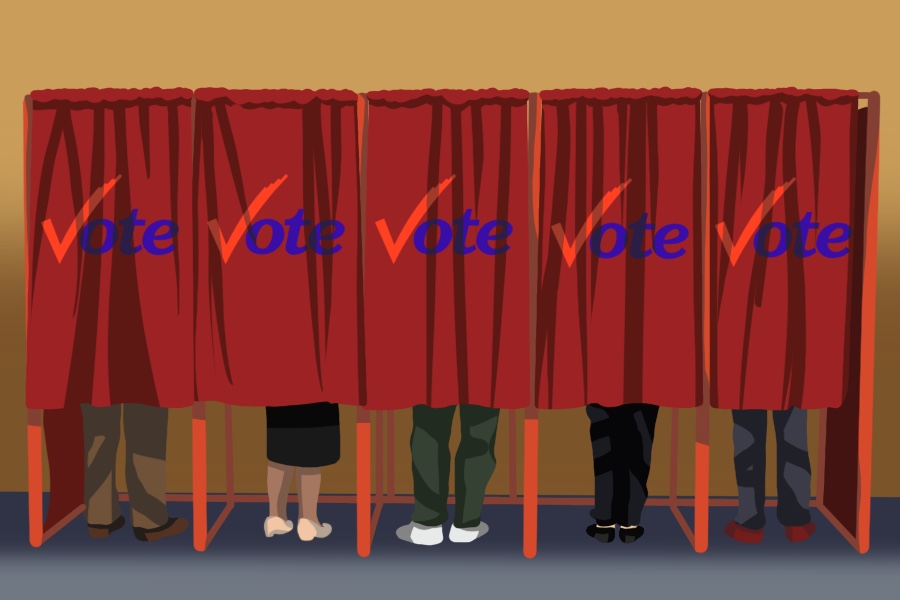
Under the nonexistent threat of voter fraud, Republicans suppress minority votes
Despite becoming president of the United States of America following the 2016 election, Donald Trump, and numerous other Republicans, cried voter fraud. They asserted that there was a widespread attempt on behalf of the Democrats to cheat on elections through illegal voting. With the midterms coming up in November, President Trump is warning Americans again, tweeting: “Cheat at your own peril. Violators will be subject to maximum penalties.”
This would be a statement of worthy consideration if voter fraud was an issue, but it isn’t. A study conducted in 2012 analyzed 2,068 cases of alleged election-fraud dating back to 2000 and found 10 cases of voter impersonation. During that time, there were 146 million registered voters in the United States, meaning voter fraud occurred once for every 15 million prospective voters. A follow-up study in 2016 looked into five states where politicians had voiced concerns over fraudulent voting and found zero successful prosecutions for voter fraud. A Dartmouth College study found no evidence of voter fraud in the 2016 election. It would appear to the objective observer that voter fraud does not exist, except in the mind of partisan Republicans.
And yet, a number of states have taken this illusionary threat of voter-fraud quite seriously. Many of the policies enacting stricter voting laws came before the 2016 election, though attempts at voter suppression are ongoing. In Shelby v. Holder (2013), the Voting Rights Act of 1965 — which outlawed the discriminatory practices of states once belonging to the Confederacy — was struck down by the Supreme Court, as it was deemed no longer necessary. Within hours of the Supreme Court’s decision, Texas announced a strict new voter-ID law, with Mississippi and Alabama shortly following suit. Last year, 99 bills intended to decrease voter access were introduced in 31 state legislatures. These measures, adopted by various states, entail cuts to early voting, restrictive voter ID laws, purges of voter rolls and delays in voter registration processing — an issue particularly relevant to Georgia.
Brian Kemp, Georgia’s Secretary of State, is currently being sued for suppressing minority votes after an investigation conducted by the Associated Press found that a month before November midterms, his office had not approved 53,000 voter registrations. This case, and suppressive voter laws in general, expose the biases behind exaggerated claims of voter fraudulence. While on paper these laws appear racially neutral, they disproportionately impact minorities — who tend to vote Democrat — as opposed to their white counterparts. In Georgia, of the 53,000 idle applications, 70 percent were African-American. It’s important to note that black people make up 32 percent of the Georgia population.
Over the past decade, states have made it harder to vote — particularly for minorities. In North Dakota, for example, Native Americans must now provide an ID that shows a street address, even though many of their homes do not have addresses by default. North Carolina had mass poll closures during the 2016 election in 40 counties with large black communities; citizens had 158 fewer early polling places. An MIT study found that on average, Hispanic voters spend one-and-a-half times as long in line, and African-Americans spend nearly twice as long as their white counterparts when voting.
It’s not only deep-red states attempting to suppress votes. Before the 2016 presidential primary, New York illegally removed over 120,000 people from its voter registration lists, which disproportionately impacted Hispanic voters. Ohio, Wisconsin, Indiana and Iowa have all been accused of voter suppression in the past year as well.
Multiple studies and court rulings indicate that racially biased election laws favored Republican candidates in 2016. To be clear, these Republicans are not suppressing votes due to racism but instead political strategy as these voters are more likely to vote for Democrats — a noteworthy distinction.
Our notoriously small voting population will only continue to dwindle as Republicans continue to “combat” voter fraud. The Republican Party has pushed the delusion of rampant voter fraud in order to enact restrictive voting laws, cutting the number of active voters until, coincidentally, the few voters left are most likely to vote Republican.
Americans don’t vote — we’ve all been told this. Perhaps the reason for not voting isn’t a lack of interest, but rather, our country’s history of suppressing votes. Originally, you could only vote if you were a white man who owned property. The law expanded to include all white men, then eventually expanded to encompass black men and later women. Yet, even when these rights were imparted, they were also often suppressed by states. Jim Crow laws, poll taxes and other discriminatory methods have prevented African-Americans from voting. Now, states have found a less blatantly biased method for suppressing votes.
With elections approaching this November, I would advise that we all exercise our right to vote and elect into office those who would defend that right.
Written by: Hanadi Jordan — hajordan@ucdavis.edu
Disclaimer: The views and opinions expressed by individual columnists belong to the columnists alone and do not necessarily indicate the views and opinions held by The California Aggie.








